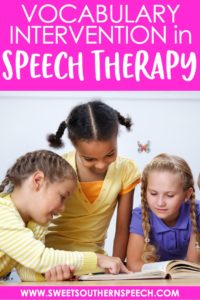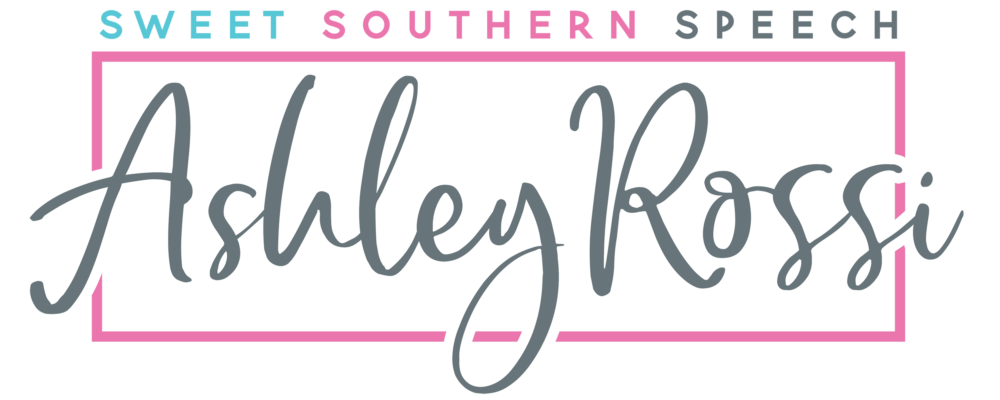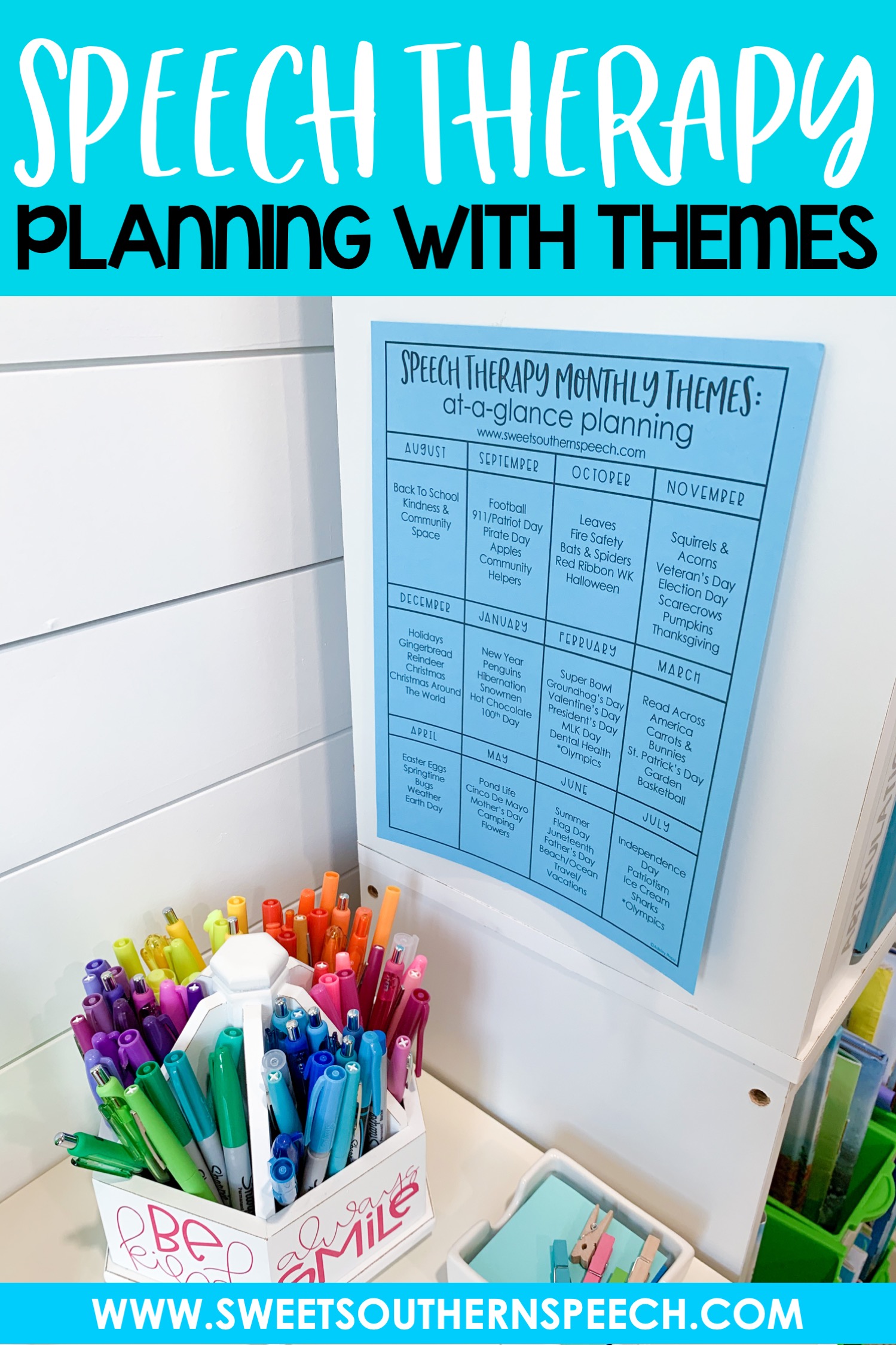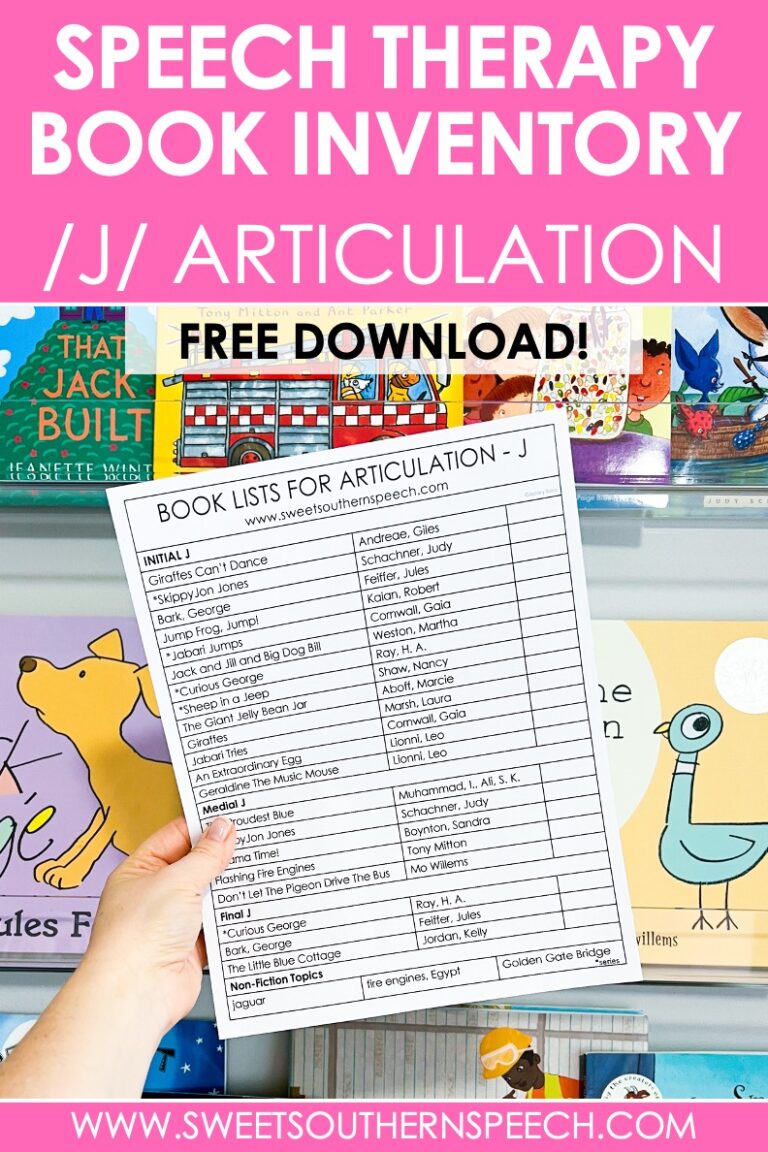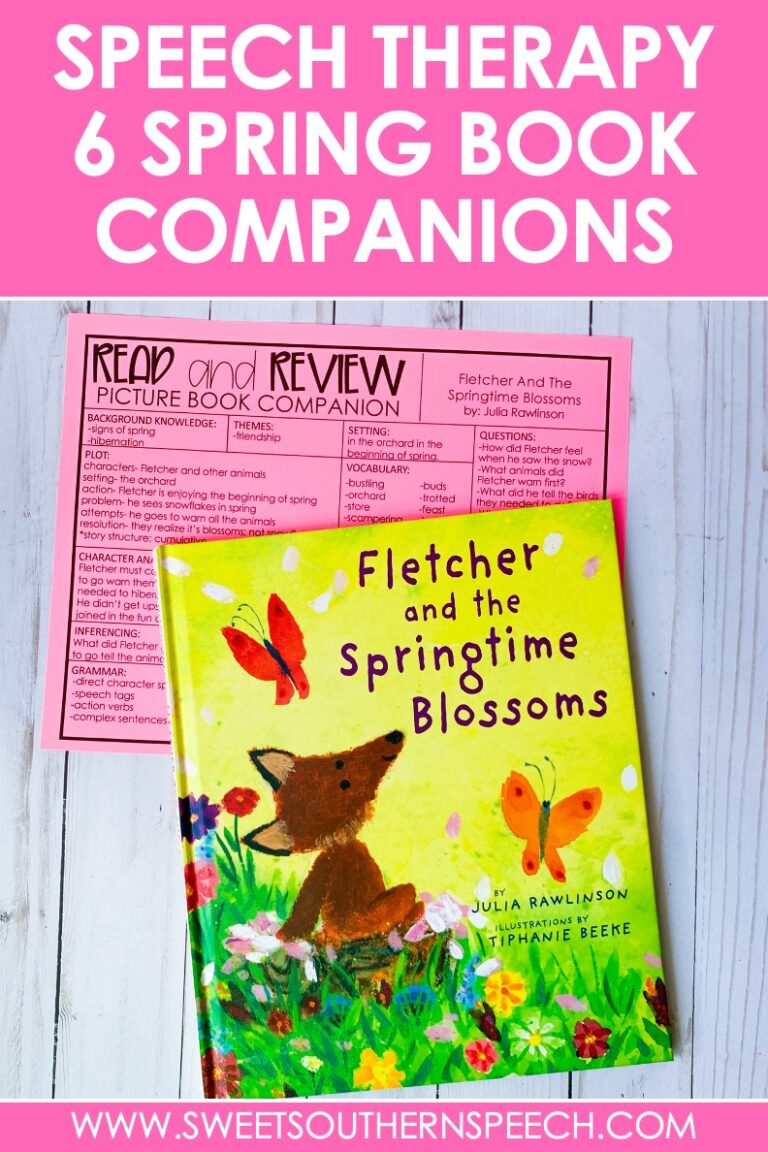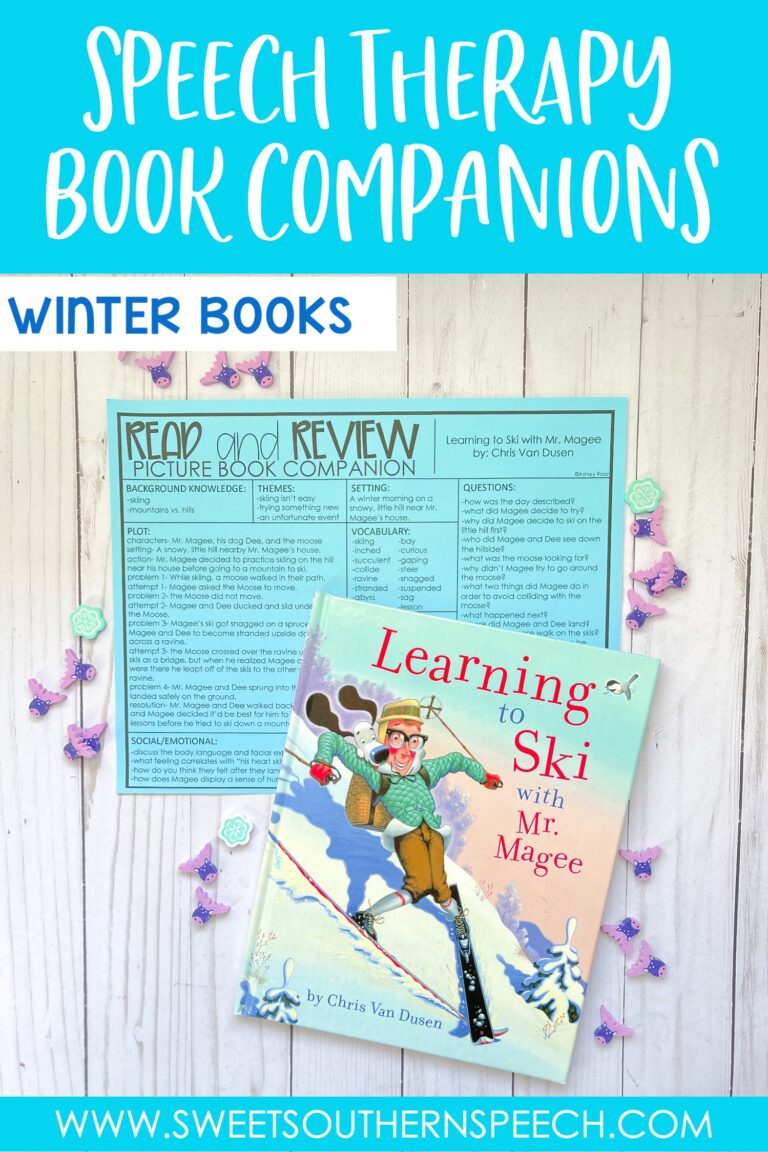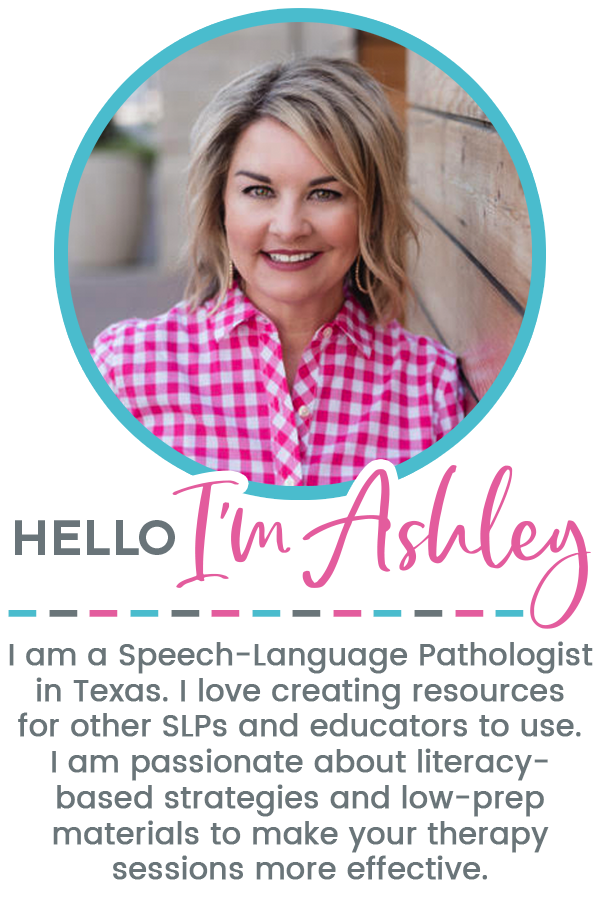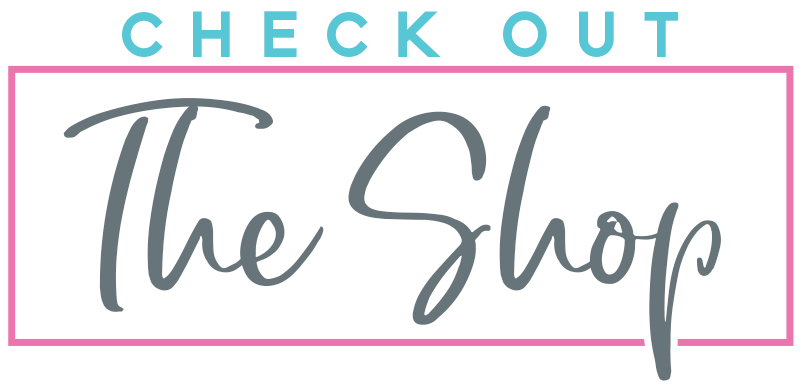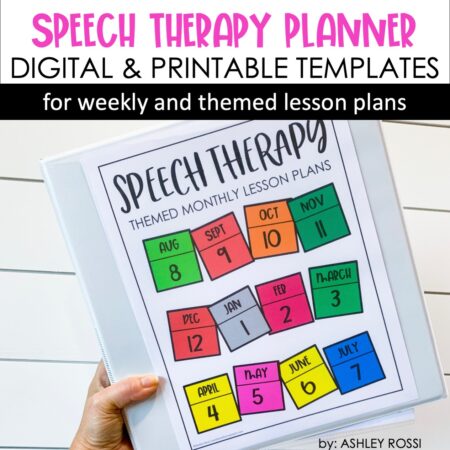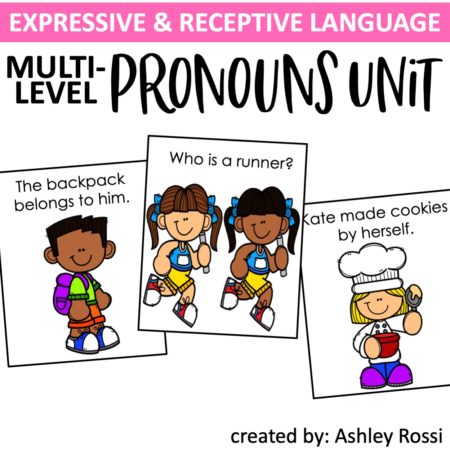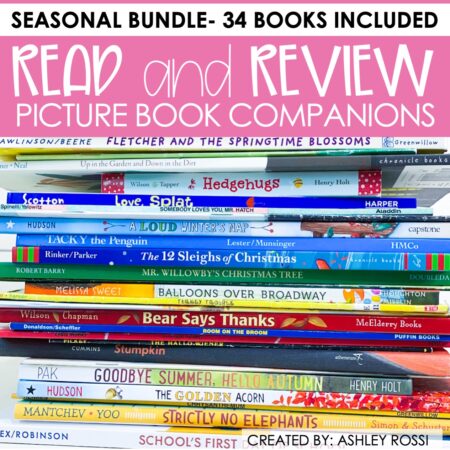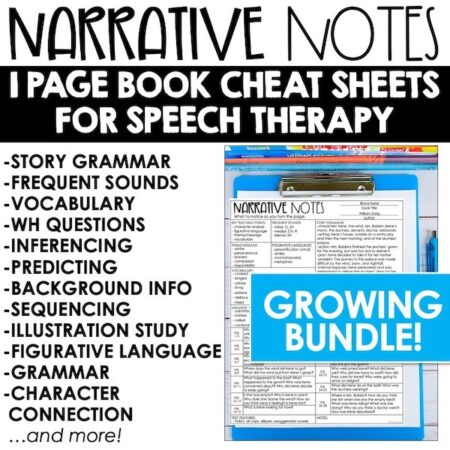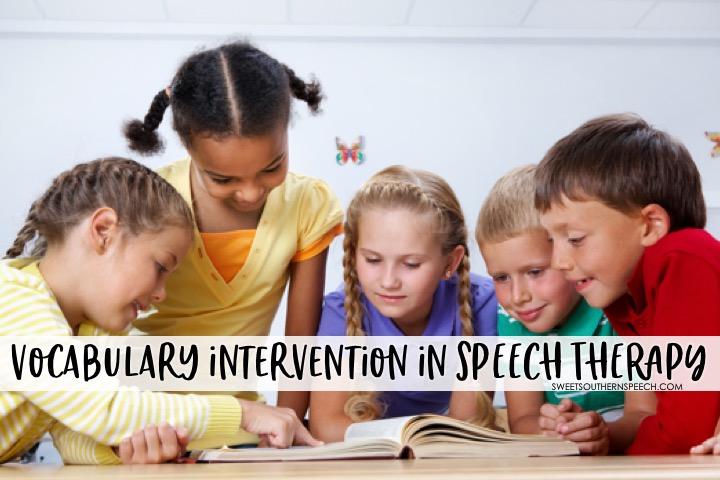
How To Improve and Take Data on Vocabulary In Speech Therapy
How many of your students have vocabulary goals for Speech Therapy? #nearlyallofthem We know our students struggle with vocabulary. We can see it in their poor reading comprehension and oral expression. Vocabulary is vitally important. But man, it’s a huge mountain to climb when faced with vocabulary as a goal. Where do we even start? Why do grade level lists vary so much? How in the world do I take data on it? Let’s look at what the research says on best practices for vocabulary intervention in Speech Therapy. We CAN improve and take data on vocabulary!
Research on Teaching Vocabulary:
“The most effective vocabulary teaching methods included both definitional and contextual information in their programs, involved the students in deeper processing, and gave the students more than one or two exposures to the to-be-learned words.” Stahl and Fairbanks (1986)
Children with LI need many exposures to achieve complete word learning, and they also require continued follow-through to maintain their vocabulary gains (Riches et al., 2005; Rice et al., 1994)
“Children in Grades 3–5, with reading fluency in the normal range but poor reading comprehension, and found that “students who were taught vocabulary outperformed… students who were exposed only to the target words in text,” even if they were exposed to the word several times. Vocabulary teaching strategies included:
- determine the part of speech (e.g. noun vs. adjective)
- analyze for morphological clues (e.g. “replacing un with not to figure out unclear means not clear”)
- look for context clues
- and, if the above three methods were inadequate, look the word up
Their finding—that children with reading difficulties require explicit vocabulary instruction to make progress—has been supported by previous studies as well. Elleman, A.M., Steacy, L.M., Olinghouse, N.G., Compton, D.L. (2017). Examining Child and Word Characteristics in Vocabulary Learning of Struggling Readers. Scientific Studies of Reading. Advance online publication. doi:
“A systematic review examines how vocabulary instruction impacts reading comprehension. The authors looked at intervention outcomes from 36 studies of Pre-K through 12th grade children, with and without disabilities, some English language learners, and all subject to vocabulary intervention. The results guide us to:
- Teach word meanings to support comprehension. Even just a little definition instruction was found to be helpful, compared to none at all.
- … however, just being told the definition of a word isn’t enough. Students need to be actively engaged in thinking about the word meaning.
- Studies easily find an impact on taught vocabulary. What we don’t know is if vocabulary intervention can broadly impact reading comprehension.
- There also isn’t strong data to indicate that teaching a strategy (instead of specific words; e.g. using context clues) can broadly impact reading comprehension.” Wright, T.S., Cervetti, G. (2016). A systematic review of the research on vocabulary instruction that impacts text comprehension. Reading Research Quarterly. Advance online publication. doi: 10.1002/rrq.163.
Strategies for Vocabulary Intervention in Speech Therapy:
- Give a child-friendly definition. Dictionary definitions are NOT effective method for learning new word meaning. In fact, this strategy may result in students interpreting the wrong meaning. So, what does this look like in a typical speech session? As you are reading a picture book and come across new words, quickly provide a one or two word student-friendly definition. Use this for post-reading activities as well.
- Increase depth of word meaning. Synonyms, Antonyms, and non-examples using the Frayer Model is an effective strategy for encouraging a deeper processing of word meaning.
- Expand meaning to new contexts. Once a student-friendly definition is created, offer other examples of the use of that word. Also asking and answering additional questions related to that target word and offering additional examples and explanations are proven ways to build vocabulary depth of meaning. In speech sessions, this can be done through partner discussions or therapist-students discussions at the conversation level.
- Semantic Mapping. Put the target word in a circle and brainstorm all the words related to it. Think of describing words, synonyms, or relationships to that word.
- Context Clues. Find words in the story or passage that give clues to derive meaning.
- Semantic Feature Analysis. Make a matrix chart with +/- and where related words are listed vertically and possible features are listed across the top.
- Venn Diagrams of related concepts. Compare common characteristics of words.
- Study roots and affixes.
- Engage and expand the complexity of conversations. Specifically with preschoolers, this strategy is most effective! When the child speaks, recast to expose them to rare words. Expand their utterance and ask open-ended questions to encourage further conversation.
What words to select:
Select meaningful words. Don’t download random “grade level” lists. Look to the student’s curriculum for literature they are reading, math vocabulary, or other subject-related academic vocabulary.
Find high quality picture books and engage in dialogic reading (Interactive Storybook Reading). If you need example, look at the seasonal books I recommend and use in my language bookmarks. In each of those, I pull out rich vocabulary I feel is worth going deeper with as I read and during post-reading activities.
Use thematically or taxonomy-related words. Children learn words that fit into a category they already know.
Provide multiple exposures to the words. The goal is to improve the depth (how well its understood) of vocabulary knowledge not just the breath (how many words).
Finally, after you have chosen words your students need to work on, engage them in the activities mentioned above to deepen their vocabulary knowledge.
Taking Data on Vocabulary in Speech Therapy:
You can preview vocabulary words to see how well a student understands them. As I’m reading a passage or picture book to students, I will stop briefly and probe for understanding of word meaning. I make note of words they understand or not.
After your word study work, you can assess and take data on vocabulary:
- synonyms
- antonyms
- their ability to use the word in a sentence
- student-friendly definition
These are the strategies I use in my therapy sessions. What have you found to be successful?
Additional references: Hadley, E. B., Dickinson, D. K., Hirsch-Pasek, K., & Golinkoff, R. M. (2018). , Ruston, H. & Schwanenflugel, P. (2010). , Dickinson, D. K., Nesbitt, K. T., Collins, M. F., Hadley, E. B., Newman, K., Riveria, B. L., …Hirsh-Pasek, K. (2019).
https://www.theinformedslp.com/
